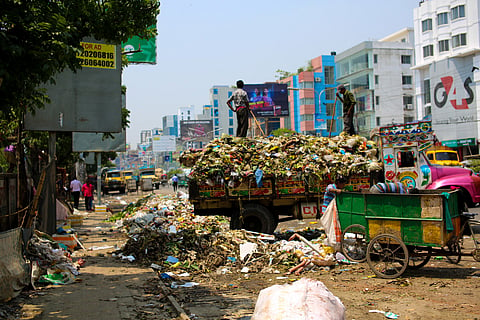Caste on the streets
Bangladesh confirmed its first case of COVID-19 on 8 March 2020. In the span of a little over a hundred days, the number of positive cases crossed the 100,000 mark with more than 1300 dead. The country imposed a nationwide lockdown on 26 March and extended it several times. As the lockdown was lifted on 31 May, the number of cases began to surge. Yet, Bangladesh's testing rate has been cut despite the rise in fatalities, with just 13,500 fresh tests conducted by July 10. Bangladesh's mayors have been asked to transition to zone-based lockdowns, with those identified as red zones given a public holiday and asked to curtail non-essential movement, though the decision is yet to be implemented. Within Dhaka, 60 COVID-19 confirmed cases per 100,000 people would qualify as a red zone; everywhere else, red zones will be declared for 10 confirmed cases per 100,000 people.
In this atmosphere of uncertainty, Dhaka's street cleaners are among those most at risk of contracting COVID-19, as many of them continue to work without adequate safety gear.

